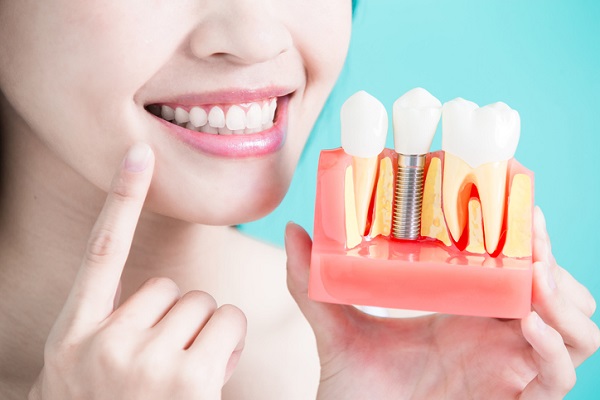The Canadian population is getting older and that’s creating increased demand for dental implants, such as dentures and bridges. As such, it’s important for professionals to be aware of the unique considerations that go into caring for dental implants.
Simply put, dental implants are not like regular teeth. Restorative dental hygienists need to know the proper techniques for caring for dental implants so that their patients’ oral health is maintained. In fact, improper care of dental implants could damage them and cause patients unnecessary discomfort and even oral health problems. Here’s a look at three things to keep in mind when working with patients who have dental implants.
1. Restorative Hygienists Should Be Careful About the Instruments They Use on Dental Implants
The instruments that you use on dental implants should be carefully chosen, since instruments that are otherwise safe for natural teeth may damage dental implants. For instance, both plastic and metal scalers have disadvantages when used on implants. Metal scalers may damage the implant while plastic scalers can leave behind plastic debris.

When working on titanium implants, the scaler should also be made of medical-grade titanium. It is also important that you pay careful attention to the amount of power you are using as a scaler with too much power could damage the implant.
2. Restorative Hygiene School Helps Hygienists Educate Patients About Proper Dental Care
An important part of a dental hygienist’s job is educating patients about proper at-home oral health care. As such, you will learn how to instruct patients on proper oral hygiene procedures they can perform at home as part of your training at restorative hygiene school.
Patients with dental implants especially need to be taught about proper at-home care. For instance, titanium dentures are more likely to corrode when exposed to highly acidic foods and drink. Patients should also be instructed to use home-care products that have a neutral pH balance so as to also limit corrosion. Water flossers, when used in conjunction with traditional flossing, are also a useful tool for patients with dental implants as they can reduce bleeding.
3. Excessive Cement Can Contribute to Dental Implant Health Problems
Learning how to complete final cementation of indirect restorations is another key skill you will learn in your restorative dental hygiene program. When performing these tasks, it’s very important that you ensure you are not using too much cement. One of the most common causes of dental implant failure is excessive cement, which the body recognizes as a foreign substance. This can lead to inflammation and bacteria buildup.
When caring for patients who already have dental implants, you should keep an eye out for excess cement around the margins of the implant. If the dental implant appears to have too much cement, you should bring this to the dentist’s attention.
Are you ready to take your dental hygienist career to the next level?
Contact the Canadian Academy of Dental Health & Community Sciences to learn more about our restorative dental hygiene diploma.


